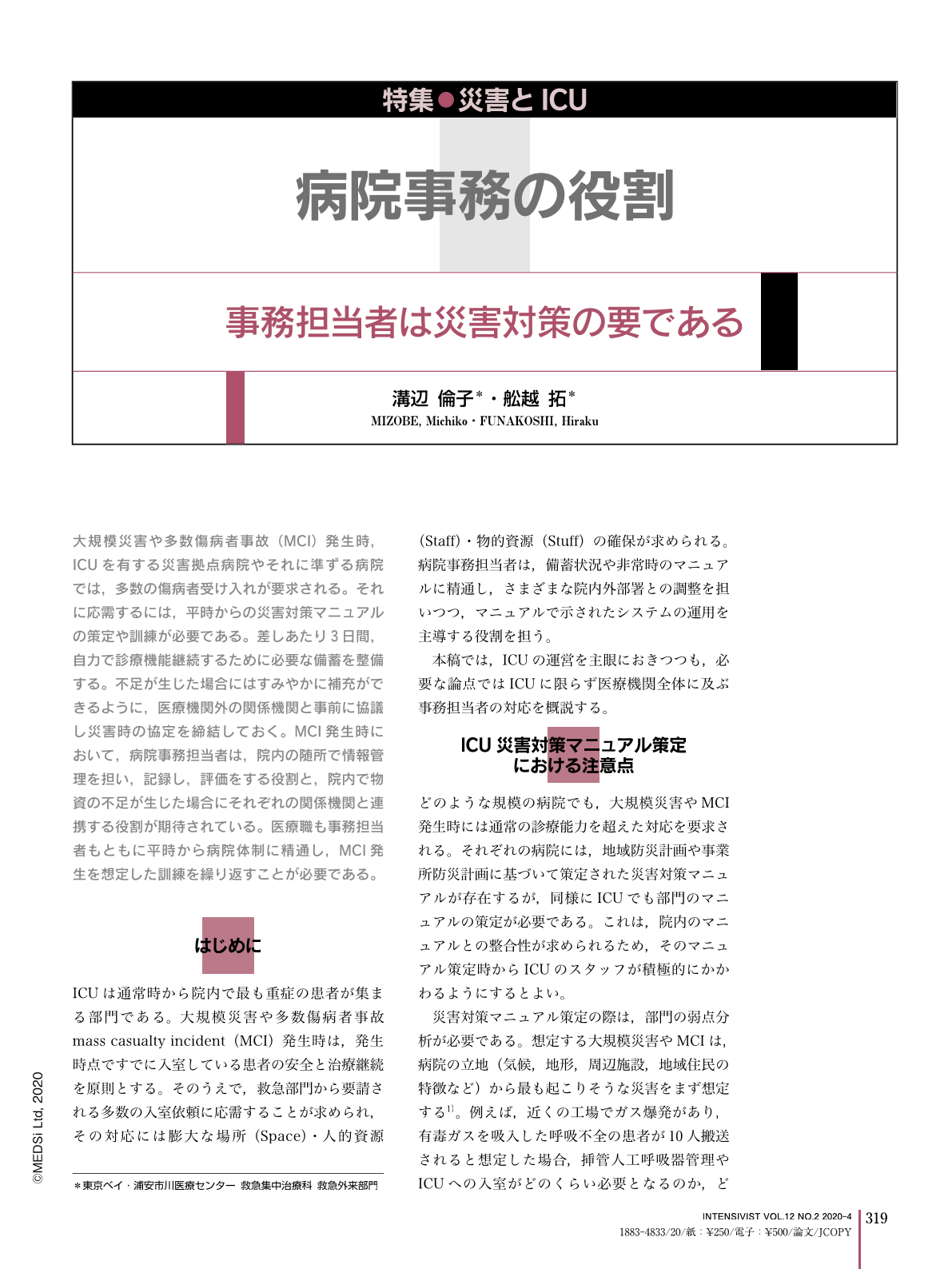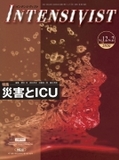Japanese
English
- 有料閲覧
- Abstract 文献概要
- 1ページ目 Look Inside
- 参考文献 Reference
大規模災害や多数傷病者事故(MCI)発生時,ICUを有する災害拠点病院やそれに準ずる病院では,多数の傷病者受け入れが要求される。それに応需するには,平時からの災害対策マニュアルの策定や訓練が必要である。差しあたり3日間,自力で診療機能継続するために必要な備蓄を整備する。不足が生じた場合にはすみやかに補充ができるように,医療機関外の関係機関と事前に協議し災害時の協定を締結しておく。MCI発生時において,病院事務担当者は,院内の随所で情報管理を担い,記録し,評価をする役割と,院内で物資の不足が生じた場合にそれぞれの関係機関と連携する役割が期待されている。医療職も事務担当者もともに平時から病院体制に精通し,MCI発生を想定した訓練を繰り返すことが必要である。
Once a large-scale disaster or MCI (Mass Casualty Incident) occurs, hospitals having an ICU are required to accommodate more patients. Development of and training for a hospital-based disaster plan during non-disaster conditions are needed. Hospitals must have the capability to function and continue to provide medical care for three days. In addition, to be able to supplement the disaster plan immediately when something unanticipated occurs, a person in charge needs to discuss it and revise the plan at the time of the disaster with related organizations outside the hospital. The clerks in hospitals during a MCI perform information management, record it, and evaluate it. They also have a role to cooperate with related organizations if there is a lack of supplies. To perform these tasks, clerks become familiar with the hospital system in normal situations, and it is necessary to repeat training for management during a MCI.

Copyright © 2020, MEDICAL SCIENCES INTERNATIONAL, LTD. All rights reserved.


